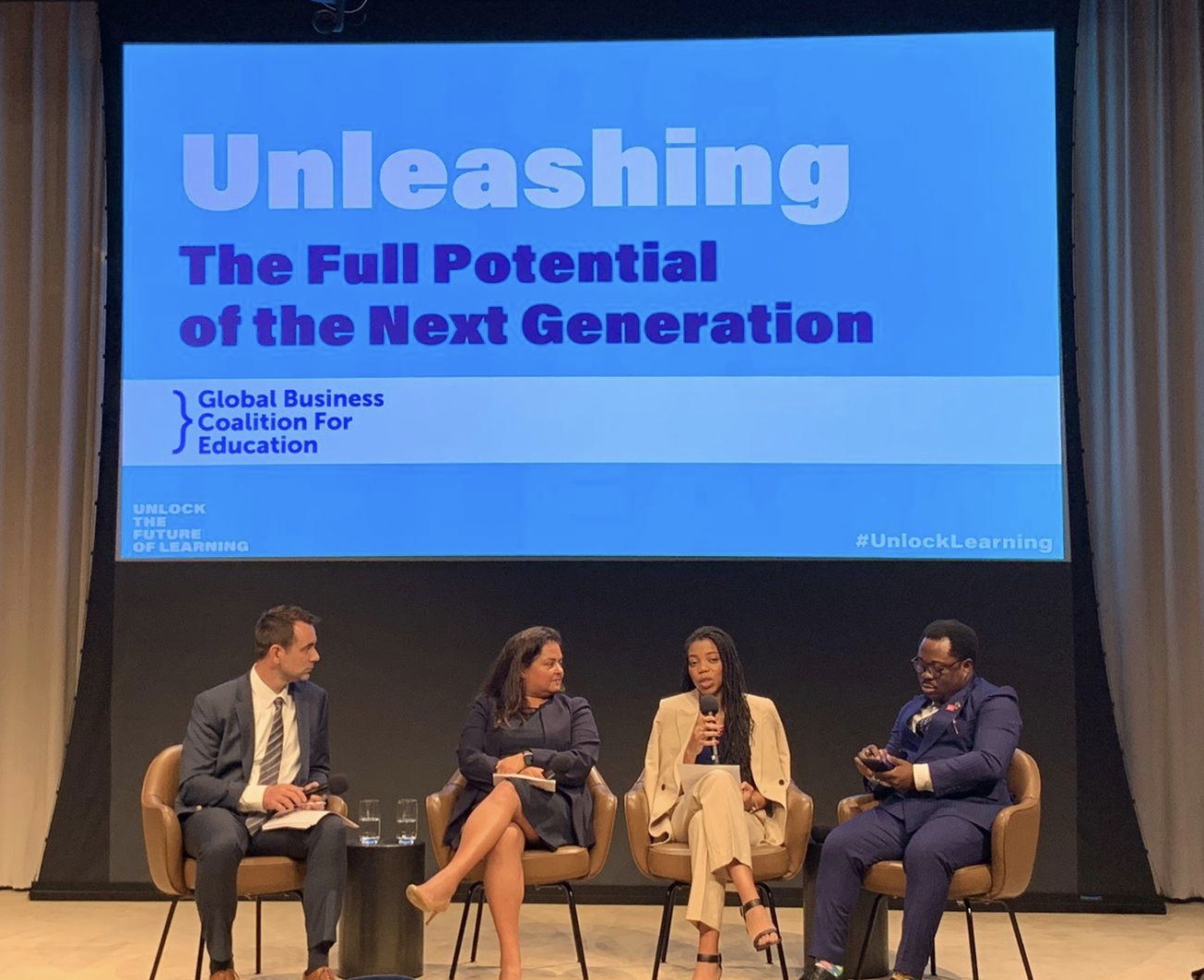UNGA: Business’s role to support the next generation

News
UN General Assembly: How can the private sector support the next generation?
Today at the UN General Assembly in New York, the Global Business Coalition for Education brought together the voices of young people and business leaders to talk about how the private sector can help unleash the potential of the next generation.
In a panel discussion during the “Unlock the Future of Learning” event, part of the “Transforming Education Summit,” Justin van Fleet, GBC-Education Executive Director, encouraged Ara Anoshiravani, Purpose Office Leader of Education and Workforce Development at Deloitte, Blessing Adogame, Global Youth Ambassador with Theirworld and UX Product Manager at Microsoft, and Gideon Olanrewaju, Chief Executive Director, Aid for Rural Education Access Initiative (AREAi), to share their views on the challenges and opportunities for preparing the next generation of workers.
The past few years have been challenging for young people, with pandemic-related school closures, increasing inequalities, social tensions, rising cost of living, hunger, and war and conflict in some areas. But we know that the only way to address these crises is for young people to have the skills they need to engage in society, in the workforce, and be changemakers. When it comes to youth employment, we have a troubling scenario:
On one hand, three out of every four companies have reported talent shortages and difficulty hiring. On the other hand, 260 million people globally are not going to school and an estimated 800 million people do not have the basic skills needed to enter the workforce.
To unleash the potential of the next generation, we need to engage the private sector and bring young people together to bridge the gap between education and the workforce.
For Blessing Adogame, the problem starts with education, something companies need to respond to.

How can we be expected to break the glass ceiling when the pillars of our education system are falling apart? The world is facing a profound skills crisis, and if companies don’t rise up to these challenges, the young people that will fall first.
Blessing Adogame, UX Product Manager at Microsoft
According to Adogame, young people think that they might be prepared to enter the workforce when they leave college, “Yet, the A’s you got in class don’t translate to guaranteed success at work.” This was why she started a campaign on LinkedIn to help other young black girls like her get the skills they need to enter the technology sector.
Ara Anoshiravani at Deloitte sees this through a different lens —the employer perspective. Historically, Deloitte primarily hired individuals with four-year degrees but is currently investing in skills-first initiatives across the talent lifecycle; this is a top priority for the company to help create a better future and more equitable and diverse workforce. Deloitte is also a founding member of OneTen, a coalition of 70+ employers committed to help hire, promote, and advance one million Black Americans without a four-year college degree into family-sustaining careers by 2030.

Let us hold companies accountable. We should be seeing more jobs based on skills and more youth development through apprenticeships.
Purpose Office Leader of Education and Workforce Development, Deloitte
Gideon Olanrewaju highlighted the disconnect between academia and the current and future jobs. According to him, this will require a massive investment in digital infrastructure and skills, in particular in his home country, Nigeria, where broadband internet is not widely available.

Governments [and businesses] need to support continuous professional development of teachers. No educational system – formal or informal – can outshine the quality of teachers.
Chief Executive Director, Aid for Rural Education Access Initiative (AREAi)
